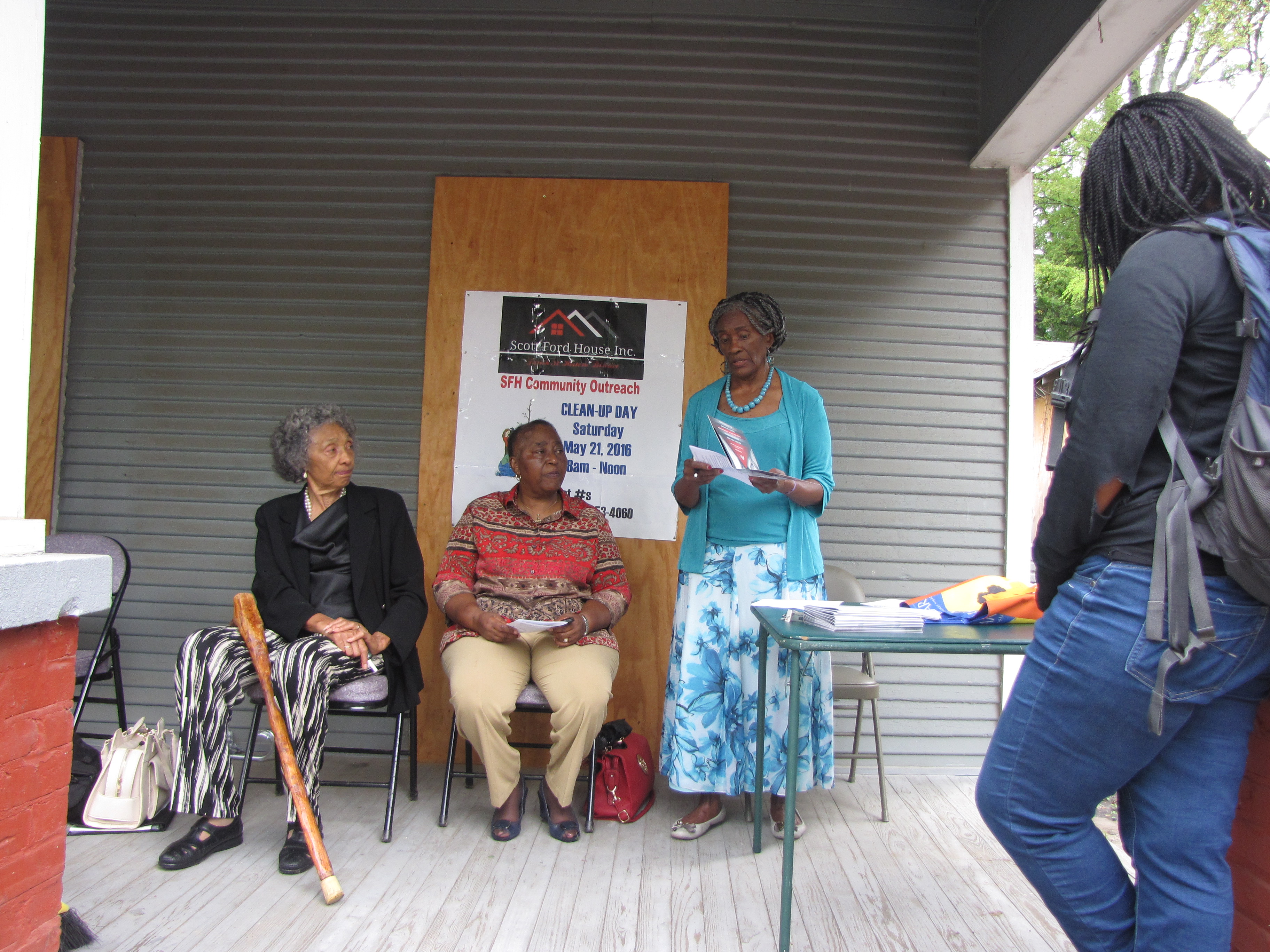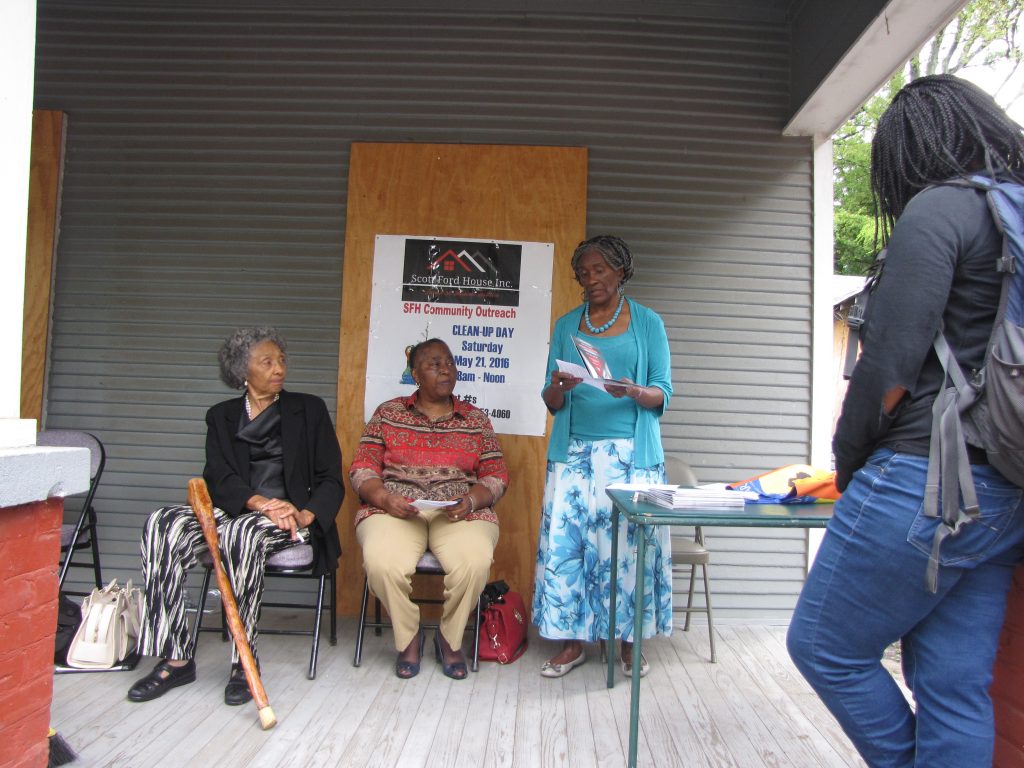
By Janice K. Neal-Vincent
Contributing Writer

Brainstorming on the care nurse midwives once provided to women and babies decades ago took place at the Smith Robertson Museum Sept. 17, during the Scott Ford House Midwifery Project.
One of the project’s visionaries, Alferdteen Harrison, Ph.D., led the event that was held from 9 a.m. to noon. Simultaneously, Robert Luckett, Ph.D., director of the Margaret Walker Research Center at Jackson State University, conducted oral history interviews in another section of the museum. In the afternoon, a Neighborhood Folk Festival was held at the Scott Ford houses located at 136 and 138 Cohea St. in Jackson, which is the site for the projected Scott Ford House Museum Complex.
Archivist Angela Stewart of the Margaret Walker Center reported on the historical context of midwifery that began during biblical times. However, “In 1619 the early midwives came to the U.S. (and) were the root doctors on the plantation. They were sensitive to the needs of women and children. They forged an important bond between the slave women and the plantation, despite an increase in male doctors,” Stewart said.
The archivist further noted the midwives preserved and passed on African-American culture of health care to the next generation. Eze Uzodinma honored his mother, Minta Uzodinma, as the shero who fought to save the Mississippi nurse midwives. “In 1970 she was the first to graduate from the University of Mississippi Medical Center. There was a rift between doctors and nurses. But when midwifery programs were closed, she lobbied to promote independent nurse midwifery practices,” he stated.
Judy Barber, director of Associate Health Workers, admired Minta Uzodinma as a dedicated visionary in the practice of midwifery. She told listeners she recalled the time when Uzodinma set out to save the midwifery program. Ivory Paul Phillips, Ph.D., dean emeritus of the School of Education at JSU, said of Uzodinma, “She delivered my first son in March 1973. The attending physician got drunk and was unable to attend the birthing. So she stepped in as nurse midwife and performed the delivery. It was five or six months later when I realized what had happened because husbands were not allowed in the delivery room at UMC.” Charlene Thompson, field researcher of the Smith Robertson Museum, reported on the Scott Ford House Midwifery Project in the Second Congressional District.
She identified four midwives from Bolton and found people either birthed by these women or who used these women to birth their children. Her research also comprised midwives from Edwards, Tutwiler, Webb, Sumner, Utica and New Hebron. Sharing continued during the Neighborhood Folk Festival with tours of the Scott Ford House grounds, music, food, crafts, a quilt demonstration and entertainment.
Dr. Freda Bush, an obstetrician and gynecologist who was once a nurse midwife, expressed that the value of midwives should be shared with the community. Harrison denoted there were white midwives who delivered black babies and black midwives who delivered white babies.
Thus, the midwifery project will house recorded stories of both races. District 69 House Rep. Alyce G. Clarke informed those at the festival that Ruth Weir, Virginia Scott’s granddaughter, saw that the houses were to be auctioned. Weir called her to see if they could be salvaged. “Had it not been for that call, these houses would be lost,” she said.
Harrison said the Community Foundation of Greater Jackson serves as the project’s sponsor. “We are projecting a first class museum. We will do historic gardening, and we will have an archeological bed. We intend this to be an educational project for school children.” Harrison added that thus far there has been no discovery of another property associated with midwifery.
Inquiries can be made at Scott Ford House, Inc., P. O. Box 1173, Jackson, MS 39215. To donate go to: www.cfgi.org, click on Scott Ford logo and donate or send check for Scott Ford House to: The Community Foundation of Greater Jackson/525 East Capitol St., Suite 5B/Jackson, MS 39201.
To share stories, email: alferdteen@aol.com or call (601) 953-4060.

Be the first to comment